Kevin DeYoung's Blog, page 68
October 8, 2014
What We Won’t Regret
 After writing yesterday’s post on God’s “regret” and then reading R.C. Sproul Jr. write poignantly about how he regrets not holding his wife’s hand more, I got to thinking about all the things we are likely not to regret when we get to the end of our days.
After writing yesterday’s post on God’s “regret” and then reading R.C. Sproul Jr. write poignantly about how he regrets not holding his wife’s hand more, I got to thinking about all the things we are likely not to regret when we get to the end of our days.
We won’t regret playing hide and seek with our children.
We won’t regret turning off the t.v. and putting the phone away.
We won’t regret that one night (or week, or even season of life) we let the kids get happy meals just so they would be happy and we could survive.
We won’t regret singing the same hymns over and over until they became familiar enough to sing with the saints around a hospital bed.
We won’t regret the time we spent hiding the word in our hearts.
We won’t regret jumping in a pile of leaves every fall.
We won’t regret overlooking a lot of little things that bother us about our spouses.
We won’t regret kissing our spouse in front of the kids.
We won’t regret going to bed with a messy house if that meant we had time to chase the kids around in the backyard.
We won’t regret all the wasted time with friends.
We won’t regret laughing often and laughing loudly.
We won’t regret hugging our kids whenever they’ll let us.
We won’t regret the times the kids slept in our beds and the times in the middle of the night we had to carry them softly back to theirs.
We won’t regret being a little bit goofy.
We won’t regret asking for forgiveness, and we won’t regret forgiving those who ask.
We won’t regret dancing at weddings–fast and silly with our kids, slow and sweet with our spouse.
We won’t regret giving most people the benefit of the doubt.
We won’t regret commiting to a good church and sticking around.
We won’t regret learning to play the piano, read music, or sing in parts.
We won’t regret reading to our children.
We won’t regret time spent in prayer.
We won’t regret going on long road trips filled with frustrations, but full with memories.
We won’t regret letting our kids be kids.
We won’t regret walking with people through suffering.
We won’t regret trusting Jesus.
October 7, 2014
Does God Have Regret?
 Israel wasn’t supposed to want a king, but they asked anyway. So God gave them what they wanted—an impressive human king, just like the other nations had. His name was Saul, and he didn’t last long. He disobeyed the divine command, infuriating the prophet-judge Samuel and upsetting the Lord God.
Israel wasn’t supposed to want a king, but they asked anyway. So God gave them what they wanted—an impressive human king, just like the other nations had. His name was Saul, and he didn’t last long. He disobeyed the divine command, infuriating the prophet-judge Samuel and upsetting the Lord God.
The word of the Lord came to Samuel: “I regret that I have made Saul king, for he has turned back from following me and has not performed my commandments.” (1 Samuel 15:10-11)
In 1 Samuel 15:35, we see a similar statement:
And Samuel did not see Saul again until the day of his death, but Samuel grieved over Saul. And the Lord regretted that he had made Saul king over Israel.
Strong words. And surprising too. What does it mean for God to say “I regret”? Can God change his mind? Can we thwart God’s plans? Is God ignorant about the future? Is God just like us in that he makes honest mistakes and sometimes look back at his decisions and says, “Golly, I wish I could do that one over again”? It seems like our God makes mistakes and is forced to change course.
And yet, we know this is not the right way to understand God’s regret because of what we read a few verses earlier in 1 Samuel 15:
And Samuel said to him, “The Lord has torn the kingdom of Israel from you this day and has given it to a neighbor of yours, who is better than you. And also the Glory of Israel will not lie or have regret, for he is not a man, that he should have regret.” (28-29)
We must keep in mind one of the great principles of biblical interpretation: the author was not completely stupid. We have no reason (other than our own biases) to think verse 29 was inserted by a later scribe and no reason to think verse 29 cannot cohere with verses 11 and 35. Clearly, if we are going to be wise, consistent students of Scripture we have to allow that in some sense God can regret, while in another sense God would not be God if he did regret.
The author of 1 Samuel–not to the mention the Author behind 1 Samuel–is trying to teach us something about God. On the one hand, our God is not static, monotonous, and lifeless. As a personal, relational Being, God’s activity in the world is subject to change and allows for all the dynamism we have in our personal relationships. There was always bound to be conflict in covenantal history between God and human beings, but this does not mean there is conflict within God’s inner being (see Horton, The Christian Faith, 240-241). As God’s ways appear to us, there will be change and variation, but as God is in his character and essence there can be no variation of shadow due to change (James 1:17; cf. Mal.3:6; Heb. 13:8; 2 Tim. 2:13).
When God reflects on the disobedience of Saul, he uses a word that makes sense to us: the word “regret.” But this doesn’t mean God was ignorant about Saul’s sin or caught off guard by his rebellion. As John Piper points out, God is quite capable of lamenting a state of affairs he himself foreknew and brought about. In other words, God’s regret is not analogous in every way to our regret. This seems to be the point verse 29 is explicitly making. God can look back at Saul and say “I’m grieved that he sinned; it’s time to find another king” while still maintaining, “I never change my mind.”
It is the nature of our covenantal relationship with God to know God as one who responds and reacts, which ought to appear to us all the more amazing because it is the nature of our covenant keeping God never to lie, repent, or change his mind (Num. 23:19).
October 6, 2014
Monday Morning Humor
I feel bad that I haven’t had my teeth cleaned at the dentist in over two years.
I feel worse that that streak comes to an end today.
October 3, 2014
A Brief Word About Science and the Word
 A Christian understanding of revelation provides a basis for science and it limits science all at the same time.
A Christian understanding of revelation provides a basis for science and it limits science all at the same time.
Because God designed the world to reveal God, the world’s creativity and order can be studied and analyzed. There is an objective universe which can rightly make the subject of evaluation and investigation. There are spiritual truths for us to see in the farthest galaxies and divine disclosure in the smallest quarks.
But because of our own blindness and ignorance we should not think that science answers all our questions. Or even the most important questions. There are some truths, including particular truths about God and salvation and spiritual realities, that require God to speak more clearly.
Science is good and necessary but it is not final or absolute. To know God and his ways we need God to use his words. Science can leave us without excuse, but only the Word can save.
October 2, 2014
The Lost Virtue of Modesty
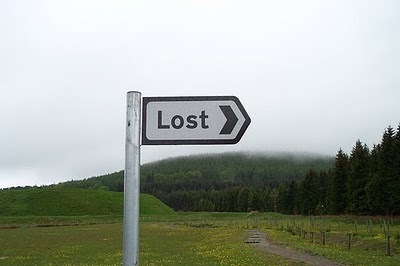 I don’t know if modest is hottest, but I do know that modesty is biblical.
I don’t know if modest is hottest, but I do know that modesty is biblical.
It is one of the marks of the confusion of our age that so many teenagers and young adults are more ashamed to dress with modest reserve than to very nearly undress entirely. Even after we give full throat to the necessary caveats–being pretty (or handsome) is not a sin, working to improve your appearance does not have to be vanity, the line between modest and immodest is not always black and white–we are still left with the undeniable biblical fact that God considers modesty a virtue and its opposite a vice.
Here are five biblical reasons Christians should embrace modesty as a God-designed, God-desired good thing.
1. Modesty protects what is intimate. There is a certain strand of feminism which says women should be proud of their sexual prowess and that any insistence they cover up what they don’t feel like covering up only serves to reinforce patriarchal notions that men have the right to determine what women do with their bodies. But the Bible’s call to modesty is not based on the supposed naughtiness of the female form. God’s good command to cover up is not meant to punish, but to protect. As Wendy Shalit writes, “The pressure on girls today to take sexy selfies comes out of a culture that routinely equates modesty with shame, instead of recognizing it for what it really is: an impulse that protects what is precious and intimate.” The common refrain of the bride–“do not stir up or awaken love until it pleases” (Song of Solomon 2:7)–is a call from one woman to a group of single women to save sexual arousal and sexual activity for its proper time, with the proper person, in the proper place.
2. Modesty accepts that our bodies also live in community. What does that mean? It means that while it sounds nice to say, “It’s my body. If I want to let it all hang out, that’s my business.” This is to forget that our bodies exists in a wider network of relationships, just like our speech does, and our actions, our will, and our desires. How we dress is not determined by how others wished we would dress. And yet, it would be sub-Christian to act as if the spiritual state of those around us was inconsequential.
Before going any further, let me state this as clearly as possible: men are responsible for their adultery, for their fornication, for their pornographic viewing, for their lust, and for their (heaven forbid) sexual assault, regardless of how a woman dresses. The Bible does not enjoin modesty on either sex because the opposite sex is simply incapable of keeping its pants on and its thoughts in check. Listen men: if Potiphar’s wife were to barge in and dance a bare-bellied jig on your kitchen table and strip you down to your birthday suit, you would still not be excused in committing adultery with her. The absence of modesty in one party does not justify the absence of restraint in another.
Having said all that, does not the law of love suggest that we should want to avoid enticing others into sin? The phrase “with lustful intent” in Matthew 5:28 is translated by some scholars (D.A. Carson among them): “so as to get her lust.” The meaning, then, instead of being about lust in the man’s heart, would be about the man wanting to get a woman to lust after him. Whether one accepts this minority position or not, it’s still a fair application to think that Jesus’ statement forbids us from having a heart attitude that lusts and a heart attitude that wants to be lusted after. Some people want to see pornography and others want to be pornography. Maybe not in a literal sense, but there are men and women who crave the power, the attention, and the status that comes from being noticed and sought after. This entices others to sin and is in itself sinful.
3. Modesty operates with the Bible’s negative assessment of public nudity post-Fall. From Adam and Eve scrambling for fig leaves (Gen. 3:10), to the dishonorable nakedness of Noah (Gen. 9:21), to the embarrassingly exposed buttocks of David’s men (2 Sam. 10:4), the Bible knows we inhabit a fallen world in which certain aspects of our bodily selves are meant to be hidden. Indeed, this is precisely what Paul presumes when he speaks of “our unpresentable parts” which must be “treated with greater modesty” (1 Cor. 12:23). There’s a reason momma called them private parts.
4. Modesty embraces the strong biblical admonition to refrain from sensuality. Sensuality (Gk: aselgeia) is a distinguishing characteristic of the flesh and one of the marks of the pagan world (Gal. 5:19; Rom. 13:13; 2 Cor. 12:21; 2 Pet. 2:2, 18). Does the word give us exact instructions on where good taste trips over into sensuality–how long skirts can be, what sort of bathing suit to wear, or whether beefy men need to run around shirtless when its 60 degrees in Michigan? No. But surely we can agree that it is not uncommon for men and women to dress in ways which only add to the look and feel of our culture’s ubiquitous sensuality. If the word aselgeia suggests sexual excess (TDNT), we would do well to consider whether the desire behind our deportment is to starve this sensual beast or to sate it.
5. Modesty demonstrates to others that we have more important things to offer than good looks and sex appeal. The point of 1 Timothy 2:9 and 1 Peter 3:3-4 is not an absolute prohibition against trying to look nice. The prohibition is against trying so very hard to look good in all the ways that are so relatively unimportant. The question asked of women in these verses–and it certainly applies to men as well–is this: will you grab people’s attention with hair and jewelry and sexy clothes or will your presence in the room be unmistakable because of your Christlike character? Immodest dress tells the world, “I’m not sure I have anything more to offer than this. What you see is really all you get.”
Let me state the obvious: the Bible has no pictures. There is no inspired how-to manual for getting dressed in the morning. There are matters of culture, conscience, and context which surely come into place. I have no checklist to check off before you head out the door.
But if the Bible is to be believed, this whole business of modesty is not irrelevant to Christian discipleship. Our bodies have been bought with a price. Therefore glorify God with your body (1 Cor. 6:20). Which means we don’t show everyone everything we might think is worth seeing. And it means we won’t be embarrassed to keep most private those things that are most precious. Shame is a powerful category, in the Bible and in our own day. The key is knowing what things we should actually be ashamed of.
October 1, 2014
Living in the Shadow of Faith
 G.K. Chesterton on the miserable state of those who despise what they cannot fully leave behind:
G.K. Chesterton on the miserable state of those who despise what they cannot fully leave behind:
They cannot get out of the penumbra of Christian controversy. They cannot be Christians and they cannot leave off being Anti-Christians. Their whole atmosphere is the atmosphere of a reaction: sulks, perversity, petty criticism. They still live in the shadow of the faith and have lost the light of the faith.
Now the best relation to our spiritual home is to be near enough to love it. But the next best is to be far enough away not to hate it. It is the contention of these pages that while the best judge of Christianity is a Christian, the next best judge would be something more like a Confucian. The worst judge of all is the man now most ready with his judgments; the ill-educated Christian turning gradually into the ill-tempered agnostic, entangled in the end of a feud of which never understood the beginning, blighted with a sort of hereditary boredom with he knows now what, and already weary of hearing what he has never heard. . . . It would be better to walk past a church as if it were a pagoda than to stand permanently in the porch, impotent either to go inside and help or to go outside and forget. (The Everlasting Man, 10-12).
The severest critics of Christianity are those who, having walked away from the faith of their younger years, cannot help but camp out in the driveway of orthodoxy and throw bricks at the house they once inhabited.
September 30, 2014
How the News Makes Us Dumb
 If you are going to read just one out of print book with a terrible cover this year read C. John Sommerville’s devastating little book How the News Makes Us Dumb (IVP 1999). I read the book soon after it came out. It was wonderfully iconoclastic then–and that was before the ascendancy of the internet and social media. The news examples are hopelessly out of date (they were already in 1999), but the media criticism is as relevant as ever.
If you are going to read just one out of print book with a terrible cover this year read C. John Sommerville’s devastating little book How the News Makes Us Dumb (IVP 1999). I read the book soon after it came out. It was wonderfully iconoclastic then–and that was before the ascendancy of the internet and social media. The news examples are hopelessly out of date (they were already in 1999), but the media criticism is as relevant as ever.
Sommerville’s main point is not the news is dumb, but that we are dumb for paying so much attention to it (11). We have become conditioned to think that the really important stuff of life comes to us in a neat 24-hour news cycle. Worse than that, in our mobile-digital age most of us assume that news is happening every second of every minute of every hour of every day, and if we tune out (or turn off our phones) for more than a few hours (minutes?) we will be rendered out of touch and uninformed. That’s dumb.
The solution is not better news, but less of it. The problem is with the nature of news itself. The news is all about information. It’s about what’s trending now. It rarely concerns itself with the big questions of life. It focuses relentlessly on change, which, as Sommerville points out, gives it an inherent bias against conservatism and religious tradition (50-54, 60-62, 135). Our soundbite/twitter/vine/ticker-at-the-bottom-of-the-screen/countdown-clock/special-report culture of news encourage us to miss the forest of wisdom for the triviality of so many trees. As Malcolm Muggeridge once observed: if he had been a journalist in the Holy Land during Jesus’ ministry he probably would have wasted his time digging through Salome’s memoirs (54).
Of course, not all news is pointless. There are long form essays, insightful commentaries, skilled journalistic exposes, striking documentaries–all of these can come under the category of “news” and all of them, when done excellently, can point people to the true, the good, and the beautiful. Sommerville’s not even against the here-today-gone-tomorrow bits of news. Neither am I. The Lord knows–and so does the internet–that I’ve written blog posts on current events before, and every Monday I post two or three minutes of silliness, for no reason except to laugh a little. The news doesn’t have to make us dumb, but if we don’t take the necessary mental and habitual precautions it almost certainly will.
Constant attention to the news will not remind us of the weight of glory. We will end up expending our emotional and intellectual energy on a thousand things that prove to be unimportant. Let your weekly magazine sit for three months; you won’t care to read half of what’s in there. No one wants to read yesterday’s paper. It’s old news. More than that, most of it is insignificant news. Not insignificant to the people in the middle of the latest tragedy or travesty, but insignificant in the scope of human history and nothing more than background noise for your crazy busy life. Go read Time from six years ago, or six months ago or six weeks ago, and you’ll be amazed how little of what’s in there even matters any more.
How the News Works
Christians talk a lot about having a world and life view whereby we can discern the news from a biblical perspective. That’s a wonderful goal, so long as we are discerning about all the subtle ways the nature of news itself distorts our view of reality.
The news exaggerates the extent of disaster in the world. Scandal sells. Tragedy sells. Controversy sells. Sure, the nightly news may end with a 60 second feel-good story or a funny YouTube clip, but the constant drumbeat of the news is bad news. The news reports on murders, abuse, war, disease, shootings, hurricanes, safety recalls, and airline crashes with complete disregard for whether these bad things have actually been getting better. Did you know that the rate of domestic violence related arrests in the NFL has decreased under Roger Goodell? Did you know that NFL players are half as likely to commit domestic violence as men in their 20′s in the general population? Everyone agrees a two-game suspension was woefully inadequate, and we all know what Ray Rice did was reprehensible. What we don’t know is how many athletes consistently do the right thing or how to place this incident into a larger framework.
The news entices us into over reactions. Don’t waste a crisis, right? Anytime something breakdown or someone cracks up you will hear plaintive cries–some well-intentioned, others manipulative–to do something, anything, right now!! Especially in the frothing world that is the Twitterverse, we are expected to respond immediately to whatever might the scandal du jour. And if you don’t do something–and by that I mean, if you don’t call on someone else to do something–then you are bound to be this week’s social media pariah. As Sommerville notes wryly, “Of course news is not authorized to offer forgiveness, but it compensates by inviting us to join in blaming others” (121).
The news over-emphasizes the role government should play our lives. This is true whether you get your news from the leftwing or the rightwing because so much of the news is about politics. In fact, oftentimes the political class and the media class act as if the other is only reality worth noticing: politicians strategize to win the 24-news cycles; media outlets talk incessantly about the latest political dish (64). And when they talk politics, it’s rarely about the “first things” behind our political disputes. It’s about outrage, opinion polls, who’s hot and who’s not in Washington. Politics has become a perpetual campaign, and most of the reporting is about the horse race not the horses. The ceaseless energy spent reporting on politics reinforces the erroneous notion that government is the proper focus of our attention and the entity most likely to solve our problems (77).
“Well,” you may say, “I don’t care if the news is fundamentally flawed. How else am I supposed to know what is going on? I don’t want to be ignorant about the state of the world.” But you already are. Even if the news is accurate—and Sommerville provides dozens of examples of major papers trumpeting exactly opposite headlines on the same day, sometimes within the same paper—how could it possibly keep us truly informed about two hundred nations and seven billion people? This is one of Sommerville’s most powerful points: “It turns out being informed really means knowing what the people around you are talking about. Our reality is the news, not the world” (43).
The news doesn’t keep anything before us for long. Are the racial tensions exposed by Ferguson no longer an important issue in our country? Of course not, but most people will quickly move on to something else because the news will move us to something else. In the world of news there is little proportion. Today there will be breaking news, special alerts, and another must-read. How can we possibly know what really matters when everything matters to the very utmost every day? “News is addictive, and if we want to regain an active intelligence, it will mean getting over the idea that news keeps us informed in any grown-up sense of that term” (131). We are already ignoring virtually everything happening in the world. So if we have to ignore something, let’s work hard to make sure it’s the ephemeral and not the eternal.
Putting First Things First
So what’s the answer? How do we prevent the news from making us dumb?
Sommerville does not argue for a complete repudiation of the news, and neither do I. But we must keep the news in its place. Most of us would do well to read the news less often. We would be wiser, happier, and more useful if we read more books and fewer blogs, if we read older stuff, if we read the good stuff—the lasting stuff—first instead of last. Put down the phone and pick up a book. Get more worked up about the Bible and less worked up about this afternoon’s internet brouhaha.
And for those of us who blog, let’s make sure it’s not all Duck Dynasty, Miley Cyrus, and the latest slice of evangelical gossip. I’ve written plenty about hot topics from homosexuality to Hobby Lobby to the emergent church. But hopefully there’s something of lasting biblical reflection in those posts, and hopefully there’s much more to the blog than pop culture and current events. If nothing on my blog could be useful outside America and nothing will be worth re-reading a year from now, then I am of all bloggers most to be pitied. Popular perhaps, but not, in the long run, particularly helpful.
I’m not against sports and entertainment. I’m not against political punditry and cultural commentary. I’m not against all news. As gospel people we are great lovers of good news! But unless we see what the modern phenomenon of news is and what it does and what it conditions us to expect, we will be unthinking in our consumption of the news and unreflective in our digestion of the same. The news will make us dumb unless we are smart enough to merely nibble on it as snack and look for our daily sustenance somewhere else.
After writing this post, a mutual friend pointed out that Joe Carter has also written on this topic. I commend his reflections to you as well.
September 29, 2014
Monday Morning Humor
An oldie, but still a goodie. The context: the men of the family are trying to impress their wives with sentimental gifts, and the wives are trying to prove they can’t be wooed so easily. Mom and Dad Huxtable are up last. Enjoy.
September 26, 2014
Thanks Paulie, You’re One of the Good Guys
What Our Pastoral Interns Read
 For several years we’ve had a part-time pastoral internship program at University Reformed Church. This year, for the first time, our interns work full-time. The bulk of their time is spent in four areas:
For several years we’ve had a part-time pastoral internship program at University Reformed Church. This year, for the first time, our interns work full-time. The bulk of their time is spent in four areas:
1. Reading and writing
2. Ministry observation
3. Personal ministry (they do for others)
4. Personal discipleship (they receive from the pastors)
Under the first category, our interns read several books. Actually, many books. And many papers (relatively short papers–2000 words). You can see below what they will read between now and the end of May.
They will read portions of Lectures to My Students (Charles Spurgeon), Spiritual Leadership (J. Oswald Sanders), and 9 Marks of a Healthy Church (Mark Dever). These selections are for discussion only. The other ten books are read in their entirety and require a written paper.
Our interns tend to be recent college graduates who have not yet gone to seminary. We try not to duplicate the reading they do in seminary. We don’t teach languages. We don’t do church history. We don’t attempt to do what full-time professors can do better. We focus instead on books that touch on the practical side of ministry (yes, I know all theology is practical). Having said that, we want our interns to be squared away on the basic theological categories. We also want them to be challenged with some heavier reading than they probably do on their own.
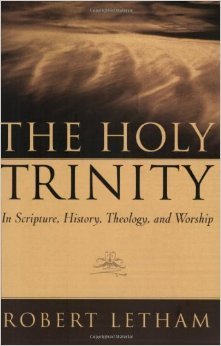 1. Robert Letham, The Holy Trinity. Biblical, historical, and rich. We thrown the interns into the deep end first.
1. Robert Letham, The Holy Trinity. Biblical, historical, and rich. We thrown the interns into the deep end first.
 2. John Murray, Redemption Accomplished and Applied. Short, but substantial. If pastors don’t understand the salvation and atonement, they aren’t ready to be pastors.
2. John Murray, Redemption Accomplished and Applied. Short, but substantial. If pastors don’t understand the salvation and atonement, they aren’t ready to be pastors.
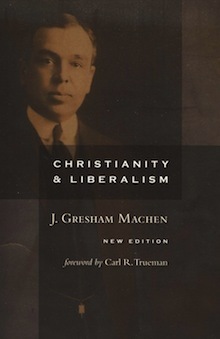 3. J. Gresham Machen, Christianity and Liberalism. Well written and still relevant.
3. J. Gresham Machen, Christianity and Liberalism. Well written and still relevant.
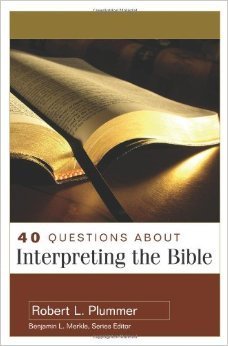 4. Robert Plummer, 40 Questions about Interpreting the Bible. Nicely organized. A good introduction hermeneutics, genre, textual criticism, and the doctrine of inspiration.
4. Robert Plummer, 40 Questions about Interpreting the Bible. Nicely organized. A good introduction hermeneutics, genre, textual criticism, and the doctrine of inspiration.
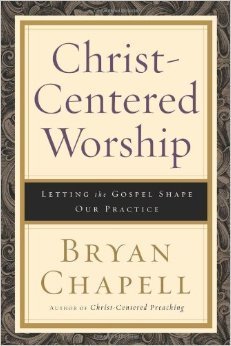 5. Bryan Chapell, Christ-Centered Worship. A good blend of worship theology and praxis. Helpful for interns to see where a more traditional liturgy comes from and why it makes sense.
5. Bryan Chapell, Christ-Centered Worship. A good blend of worship theology and praxis. Helpful for interns to see where a more traditional liturgy comes from and why it makes sense.
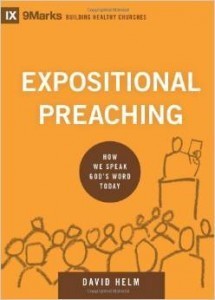 6. David Helm, Expository Preaching. Best book on the how-to and how-come of expository preaching.
6. David Helm, Expository Preaching. Best book on the how-to and how-come of expository preaching.
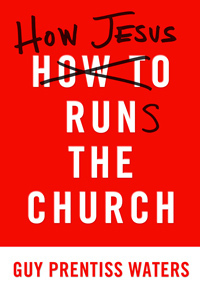 7. Guy Prentiss Waters, How Jesus Runs the Church. PCA-centric, but useful for anyone in the Reformed/Presbyterian tradition.
7. Guy Prentiss Waters, How Jesus Runs the Church. PCA-centric, but useful for anyone in the Reformed/Presbyterian tradition.
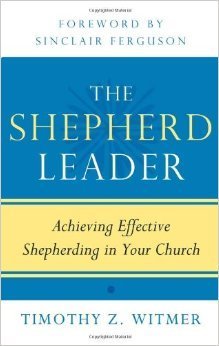 8. Timothy Witmer, Shepherd Leader. Puts a good theology of eldership into hands on ministry practice.
8. Timothy Witmer, Shepherd Leader. Puts a good theology of eldership into hands on ministry practice.
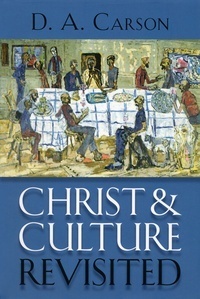 9. D. A. Carson, Christ and Culture Revisited. Balanced and wise. Provokes good discussion.
9. D. A. Carson, Christ and Culture Revisited. Balanced and wise. Provokes good discussion.
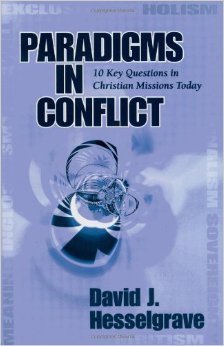 10. David Hesselgrave, Paradigms in Conflict. I am more decidedly Reformed in a couple areas, but the format effectively presents the key issues in missiology today and points the reader in a good direction.
10. David Hesselgrave, Paradigms in Conflict. I am more decidedly Reformed in a couple areas, but the format effectively presents the key issues in missiology today and points the reader in a good direction.
The list of assigned books gets tweaked year by year. In the past, we’ve assigned a few of my books, but it’s hard to write an honest paper for the guy who wrote the book. Other books we’ve assigned over the years include: Exegetical Fallacies (D.A. Carson), Worship by the Book (D.A. Carson, ed.), The Church of Christ (James Bannerman), Instruments in the Redeemer’s Hands (Paul Tripp), Preaching and Preachers (D. Martyn Lloyd-Jones), The Message of the Old Testament (Mark Dever), The Courage to Protestant (David Wells), A History of Israel (Walter Kaiser), Biblical Eldership (Alexander Strauch), A Praying Life (Paul Miller). The pastoral interns also study our church’s confessional standards, though that is covered more extensively in our membership class.



